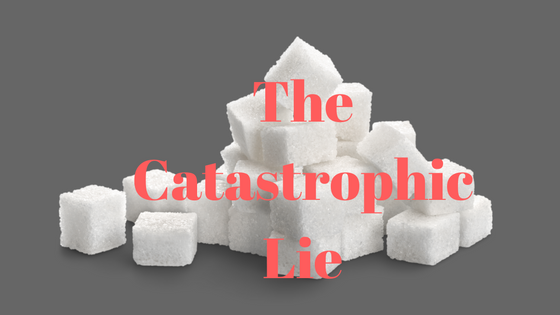Buyer Beware!
If you read an expose published in the NY Times last week, you know the sugar industry funded research that would cast doubt on sugar’s role in heart disease. “Project 226” entailed paying Harvard researchers today’s equivalent of $48,900 to exonerate sugar as the cause of heart disease and place the blame on something else.
The resulting article published in 1967 concluded there was “no doubt” that reducing cholesterol and saturated fat was the only dietary intervention needed to prevent heart disease.
“Let me assure you this is quite what we had in mind and look forward to its appearance in print.” Wrote an employee of the sugar industry group to one of the authors.
They got what they paid for.
It was all a lie.
The results have been catastrophic.
One of the most unfortunate unintended consequences of the fat-free crusade was the idea that if it didn’t contain fat, it wouldn’t make you fat. For decades, our supermarket shelves have been lined with low-fat, no-fat products. Consumers sought out these products believing they were making healthy choices.
The more fat-free products there were on the market, the fatter Americans got.
Truth is, farmers have known for thousands of years that you can make animals fat by feeding them grains, as long as you don’t let them run around too much, and it turns out that applies to humans too.
Weight gain however, was only part of the problem.
Here is what Walter Willet; the chair of the Nutrition Department at Harvard School of Public Health (and 1 of my teachers I’m proud to say) had to say when interviewed on the subject:
When we began our studies back in the late 1970s, we expected that we would find a relationship between, say, fat intake and breast cancer, because that was almost an accepted relationship. But as the data started coming in over the years, we just did not find any higher risk of breast cancer among women who consume more fat in their diet. And the same was true for colon cancer and for heart attacks and risk of type 2 diabetes.
In fact, the percentage of calories from fat in a diet has not been related to any important health outcome.
Amount of fat has no relationship to coronary heart disease?
The amount of fat had no relationship to risk of coronary heart disease, but the type of fat was extremely important.
So the advice we were getting was not just misleading but dangerous?
Right. The evidence that we accrued really suggested not only that the type of advice that people were getting was not useful, but it actually could be dangerous, because some people were eliminating the very healthy types of fat that actually reduce heart disease rates.
Certain fatty acids can dramatically reduce the incidence of cardiac arrhythmia?
One of the important findings, not just from our studies but several trials conducted by other people in Europe and also some careful animal studies, have very clearly indicated that some types of fatty acids in the diet, in particular the omega-3 fatty acids, can actually reduce the heart arrhythmias that really cause people to drop dead in the street. We call that sudden death. And that’s very important because some people were eliminating those critically important fatty acids from their diet because they were told that all fat is bad. …
If you’re American and overweight, won’t you be put on a low-fat diet?
If you’re overweight and living in the United States, and you go to a hospital and see a dietician, almost for sure, you’re going to be put on a low-fat, high-carbohydrate diet.
What’s your view of that?
The problem is that that’s really the wrong diet for an overweight person. Because the person is overweight, in general they’re going to have quite a bit more insulin resistance and much less well able to tolerate low-fat, high-carbohydrate diet.
But fats have twice the amount of calories per gram as carbohydrates. Doesn’t it make sense to push the low-calorie diet and therefore a diet low in fat?
There’s been a very simplistic idea: Just because fats have more calories per ounce than carbohydrates, we should be eliminating fats or reducing fats to control our total caloric intake, in other words, to help control our weight. What’s really important though is how satisfying a diet is, because we have very complex mechanisms that control our total intake of calories, and it’s become pretty apparent that if we have a high-carbohydrate diet, particularly high refined carbohydrate, it makes it much more difficult to control our total caloric intake. That’s probably because when we eat refined carbohydrates, we get these swings in blood glucose and insulin that lead to hunger between meals; whereas if we have a diet that’s somewhat higher in fat, we tend to be more satisfied over the long run.
You don’t have to be a scientist to know this is true. Heart disease is still our leading cause of death and our obesity and diabetes rates are skyrocketing.
If you are overweight and/or suffering from heart disease, high blood pressure, insulin resistance, diabetes or any chronic/autoimmune disease, you need to change what you are eating.
Medicating your symptoms doesn’t make them go away.
Change is not as hard as you think when you have the right support. We have system that works and we will be there with you every step of the way.






